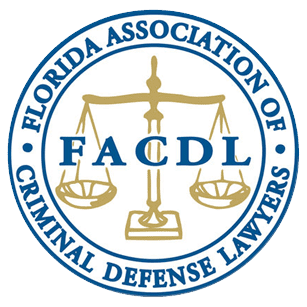A recent study from the Florida Institute of Technology supports the idea of mental health court reducing repeat offenders. Mental health court is a diversionary program that places offenders on an alternate track to a traditional prosecution, giving them access to mental health treatment instead of placing them in jail. As a result, program participants are re-offending less, and county jails are able to avoid overcrowding.
There are around 300 drug courts in the United States, with most of them operating in Florida, California, Ohio, New York, and Illinois. To participate in mental health court, the offender must provide evidence of mental illness, and the public defender and state attorney must agree on diversion from prosecution. If you have a mental health issue and are facing criminal prosecution, mental health court may be the appropriate path for your case.
Call Erika Valcarcel, Criminal Defense Lawyer, P.A. today at (941) 363-7900 to discuss your legal options.
A New Study Sheds Light on the Benefits of Mental Health Court
The Florida Institute of Technology’s study focused on 118 participants of the Brevard County, Florida, mental health court. Out of the participants, 80 graduated from mental health court, meaning that they fulfilled the terms of their specific court-approved agreement.
The offenders who graduated from mental health court re-offended at a substantially lower rate than non-participants. Importantly, the study found that mental health court graduates with criminal or violent pasts did not re-offend at a higher rate than other graduates without priors. The few graduates who did re-offend tended to commit less serious crimes.
According to Julie Costopoulos, the Florida Tech professor who led the study: “We know mental health court not only reduces jail overcrowding, it also helps participants find support to live independently and successfully while getting treatment. And now, with our study, we have shown that mental health courts also reduce arrests among the mentally ill, regardless of how much they have offended in the past.”
Some Florida Mental Health Courts Begin to Show their Limits
The nation’s first mental health court was started in 1992 in Broward County, Florida. Now, Florida has 23 mental health courts in judicial 14 circuits. Florida mental health courts served as a model to other communities creating similar programs across the country. But recently, serious flaws with some Florida mental health courts have come to light.
According to Howard Finkelstein, Broward County’s public defender and formerly one of the mental health court’s staunchest supporters: “Over time the court morphed and it became this difficult journey for the mentally ill.” Finkelstein claims that the court’s mission has shifted away from treating mentally ill offenders.
Instead, the program has been used as a sort of purgatory for difficult cases. On average, participants spend up to three years completing the program, and many of them are declared competent to stand normal prosecution before they get a chance to graduate. Broward Circuit Judge Mark Speiser, who helped create the court, said that if participants “are found competent or found incompetent but their competency restorable, they need to be prosecuted.”
Under current laws, if a person is declared incompetent to stand trial because of mental illness five years in a row, the charges must be dropped. Judge Speiser is proposing that charges be dropped after three years of an offender’s incompetence. Another issue with mental health court is lack of beds in community-based treatment centers, which results in many participants ending up in jail anyway.
A Sarasota Criminal Defense Lawyer Can Help You
Despite the program’s limits, mental health court is a good option for many people charged with crimes in Florida. If you want to know more about your eligibility for mental health court, and how enrollment might affect your prosecution, you should talk to a Sarasota criminal defense lawyer. At Erika Valcarcel, Criminal Defense Lawyer, P.A., attorney Erika Valcarcel is dedicated to helping clients achieve the best possible outcome to their criminal cases.
Call (941) 363-7900 today for a free and confidential consultation.
View All Blogs

